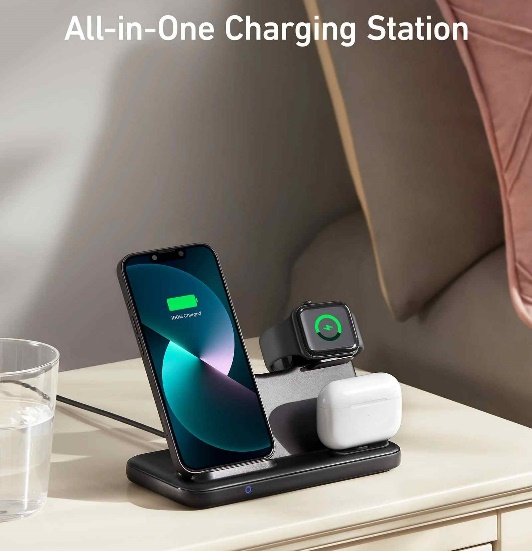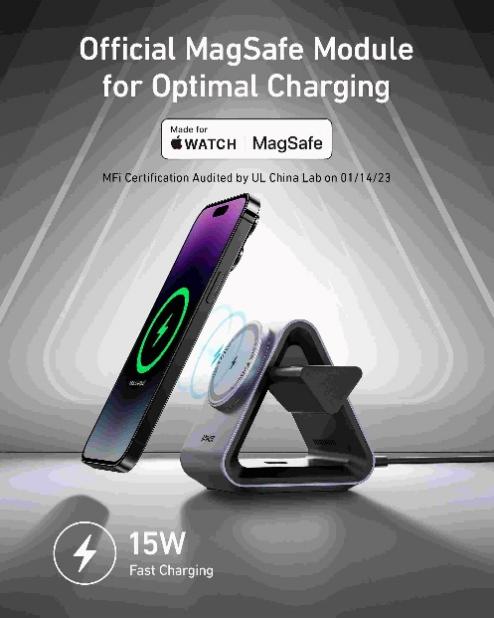A wireless charger can be an extremely useful accessory. Simply leaving your phone on the charging station will cause the battery to begin replenishing itself like magic. They have been in existence for some time, but they have not achieved the level of popularity that we anticipated. They were either too expensive, or some misconceptions surrounded them. However, this is no longer the case. If your phone and other devices allow wireless charging, you can use a single charging dock to charge all your gadgets at the same time. This eliminates the need to carry a plethora of separate wires and chargers for every device. It is simple to charge a phone with a wireless charger, but it might be challenging to select a charger that is optimized for use with your model of phone. Before purchasing a wireless charger, there are a few key points to keep in mind.
How exactly does charging using wireless technology work?
Let's gain a short understanding of how wireless chargers function before we go on to the topic of choosing the right one. Inductive charging is the foundation of the technology behind wireless charging. An electromagnetic field is produced by the coils in a wireless charger when an electric current is sent through them. When the reception plate on the mobile device contacts the wireless charger, an electric current is produced within the device by the magnetic field. Following this, the alternating current is changed into a direct current, which is then used to charge the phone.
Tips on Choosing the Best Wireless Charger
There is a wide variety of form factors and dimensions available for wireless chargers. Some chargers have the form of a pad, which may take the form of a circle, while others may take the form of a stand. They need to have a good grip that securely holds the phone on the charging surface. This is the case regardless of the design. Most chargers make use of LEDs to indicate the current condition of the charging process. There are additional models available that have space for up to two phones as well as a smartwatch, allowing you to charge several devices at the same time.

Even if your phone is protected by a case, a wireless charger will be able to charge it if the case is not made of metal and the thickness is not excessive. Considering the foregoing, a wireless charger ought to have no trouble functioning with any leather, silicon, or other comparable non-metallic material with a thickness of three millimeters or less.
There are a few different standards that can be used for wireless charging, but the most prevalent one is called Qi. Most phone makers, including Samsung and Apple, have selected the Qi standard as their go-to for wireless charging. A Qi charger of sufficient quality will protect against both overvoltage and overcharge, making the chargers completely risk-free to use. While you are wirelessly charging your phone, you could also notice that it begins to grow a little warm. Because most of these chargers come equipped with temperature control protection, you shouldn't have to worry about the device overheating. Before you go out and get a wireless charger, you need to make sure that the specifications on your mobile phone are checked.
The power output, measured in watts, is another significant aspect that you need to take into consideration. The power output of wireless chargers is typically between 5 and 10 Watts. Support for 7.5W is included in phones such as the iPhone 8 and the recently announced iPhone 15 series. Several other smartphones allow rapid charging through wireless chargers. In addition to a high-quality wireless charging pad, you should also invest in high-quality charging adapters and cables. Many high-quality wireless chargers come with both a wall adaptor and a USB cord in the box.

Conclusion
Several different manufacturers produce wireless chargers. In addition to various types of accessories, pioneering companies like Anker have contributed to the development of wireless charging technology. In addition to those made by Anker, Apple also has a line of wireless chargers that can provide rapid charging. So, if you are searching for a wireless charger, you should take note of its design, the appropriate standards that your mobile device might need, and the wattage that your smartphone requires.